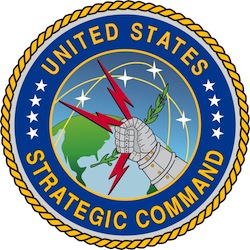Former STRATCOM Commanders Endorse New START
Featured Image
Today's top nuclear policy stories, with excerpts in bullet form.
Stories we're following today, Wednesday, July 28, 2010:
Case Closed: 7 Former STRATCOM Commanders Support New START - Nukes of Hazard [link]
- Seven of the eight retired Commanders of STRATCOM, the U.S. military command responsible for the mission of strategic deterrence and related matters, released a joint letter yesterday strongly endorsing the New START treaty. The letter can be found here.
- The Commanders write: "The New START Treaty will contribute to a more stable U.S.-Russian relationship. We strongly endorse its early ratification and entry into force."
GOP Senators Leaning Toward Yes on New START - Josh Rogin in Foreign Policy's The Cable [link]
- As the Senate Foreign Relations Committee gets ready to vote on President Obama's nuclear arms reductions treaty, several Republican senators are now hinting that they will support the agreement and are working toward bipartisan ratification.
- The key senator to watch is Minority Whip Jon Kyl of Arizona, the Republican point man on the treaty. Kyl, who is in talks with the office of Vice President Joseph Biden, isn't saying which way he's leaning -- but his friends say Kyl is getting closer to supporting ratification.
- "I'm waiting for Senator Kyl to finish his analysis, but he's leaning yes and I'm leaning yes," [Utah Sen. Bob] Bennett said.
Listen to the Military Leadership on the START Treaty - Lt. Gen. John Castellaw in the Berthoud Recorder [link]
- Over the last several months, America’s military leaders and national security experts—from both Republican and Democratic administrations—have testified before Senate committees, all with the same message: the treaty’s modest mutual reductions and strengthened verification regime improve our national security, and the Senate should ratify the treaty.
- This is an issue that should be above politics. The expert consensus is clear, and those who would disregard the facts and the advice of our nation’s military leadership in an attempt to make political hay do so at the risk of our national security.
- As Secretary Gates noted, “For nearly 40 years, treaties to limit or reduce nuclear weapons have been approved by the U. S. Senate by strong bipartisan majorities. This treaty deserves a similar reception and result – on account of the dangerous weapons it reduces, the critical defense capabilities it preserves, the strategic stability it maintains, and, above all, the security it provides to the American people. ”
New START and U.S. National Security - Ambassador Steven Pifer's Testimony before the Senate Armed Services Committee [link]
- Mr. Chairman, Senator McCain, members of the Committee, there are compelling reasons for the Senate to give its consent to ratification of the New START Treaty.
- That agreement serves the U.S. national interest: it will limit the number of strategic warheads that could target the United States, provide greater transparency regarding Russian strategic forces, allow the United States to maintain a robust deterrent, strengthen the U.S. hand in pressing to constrain proliferation, and contribute to a more positive U.S.-Russia relationship.
- Moreover, a failure to ratify would carry substantial costs for the United States. Lack of New START’s verification regime would deny us valuable insights into Russian strategic systems, and unpredictability would grow. The U.S. effort to curb nuclear proliferation would suffer. And a failure to ratify would deal a major blow to U.S.-Russian relations, resulting in less cooperation from Moscow on problems such as Iran.
The Forgotten Threat: 'Countdown to Zero' on Nuclear Weapons - Jonathan Schell in The Nation [link]
- The job, therefore, of making a film that is neither just a howl of alarm (justified as that would be), nor just a classroom primer (indispensable as that would be), nor just a historical account (fascinating and revelatory as that would be in a time when historical findings have been especially interesting) is daunting indeed.
- In the face of these contradictory challenges, Countdown to Zero succeeds powerfully. It is an absorbing, deeply informative, often shocking yet completely reliable presentation of the fundamental architecture of the issue as it exists today.
A View from the Dark Side
What the Post Gets Wrong on New START - Baker Spring in the Heritage Foundation's The Foundry [link]
- The Washington Post has arrived at the conclusion, in a July 26 editorial, that the New START arms control agreement with Russia should be ratified this year.
- Arriving at this conclusion, however, has resulted from the Post misunderstanding important details about the treaty and failing to recognize that the Obama Administration’s general approach to arms control is seriously flawed.
- [The Post seems] to believe that this treaty will address the pressing problem of nuclear proliferation and bolster the non-proliferation regime. It does nothing of the sort.



